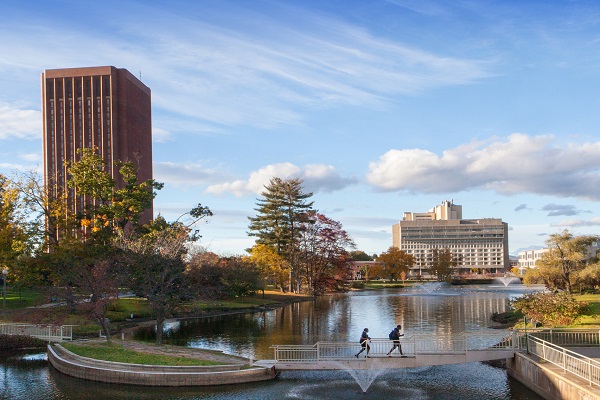University of Massachusetts Amherst: Timme-Laragy Lab Members Receive NESOT Awards
Doctoral students Madeline Tompach and Marjorie Marin claimed top prizes at the annual meeting of the Northeast Chapter of the Society of Toxicology (NESOT) held on Oct. 21. They are both members of professor Alicia Timme-Laragy’s lab in the Department of Environmental Health Sciences.
For the second year in a row, Tompach received the Graduate Student Oral Presentation Award, which includes a $1000 prize, for her presentation “Comparing the effects of developmental exposure to perfluorooctanesulfonic acid (PFOS) and non-fluorinated structural analog alpha lipoic acid on lipid uptake and metabolism.” Her research examines the antioxidant, alpha lipoic acid as a potential mitigation strategy for exposure to the pollutant PFOS which has been demonstrated to alter lipid profiles and stunt embryonic growth.
Marin tied for the first place prize in the Graduate Student Poster award category for her poster titled “Investigating the role of Nrf2a during embryonic perfluorooctanesulfonic acid (PFOS) exposure on insulin release and pancreatic β-cell morphology in zebrafish (Danio rerio).” Her work examines how the activation of antioxidant defenses by PFOS, a ubiquitous environmental pollutant, may impact pancreatic islet morphology and insulin release in zebrafish embryos. She received a $750 award.
“I’m so proud of the work that Madeline and Marjorie are doing – these studies contribute to our fundamental understanding of developmental toxicology, redox biology, and also advance our understanding of a pollutant that is found ubiquitously in the environment,” says Timme-Laragy.
The Northeast Chapter of the Society of Toxicology includes members from diverse sectors including academia, government, chemical, environmental, and pharmaceutical industries. It strives to promote continued learning and scientific excellence, in addition to networking and collaboration opportunities, for regional toxicologists and students through its annual regional chapter meeting in the fall and through sponsored events at the Society of Toxicology’s annual meeting in the spring.

